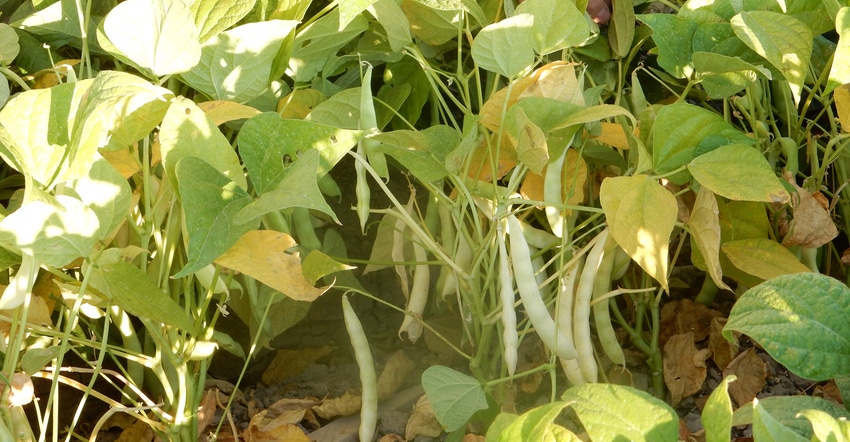January 22, 2019

By David Ostdiek
Panhandle Pride, a new Great Northern dry bean variety developed by the University of Nebraska-Lincoln, will be commercially available to growers for the 2019 season.
Also waiting in the wings are two more dry bean lines developed by the university's Panhandle Research and Extension Center Dry Bean Breeding Program. They are expected to be commercially available in 2020.
These three new seed lines are the result of years of research, breeding and field trials conducted by Carlos Urrea, dry bean breeding specialist at the Panhandle REC in Scottsbluff, Neb.
Improved yields, disease resistance
Urrea said Panhandle Pride’s genetics make it resistant to bean common rust (genes Ur-3 and Ur-6) and common bacterial blight (SAP6 and SU91), which were identified using molecular markers in Urrea’s laboratory at the Panhandle REC. Its resistance package, upright plant architecture and larger seed size are key attributes, Urrea said. The variety has higher yields than Coyne, the previous Great Northern variety released from his program.
Panhandle Pride is a midseason variety, with an 87-day average time to maturity. It blooms 44 days after planting and has white flowers and a bright white seed coat. It was released in 2015 for foundation seed increases by UNL’s Husker Genetics Foundation Seed Program in collaboration with the North Dakota Seed Foundation Program at Burlington, Wyo., and Kimberly, Idaho.
Panhandle Pride performed well in 2017 and 2018 at Kimberly, with an average yield of 3,000 pounds per acre, Urrea said. The fields were on University of Idaho plots and two growers’ farms.
The process for increasing seeds spanned several years and two continents. During the winter of 2016-17, seed numbers were increased in a winter nursery in New Zealand that Urrea uses for his breeding program. The seeds from New Zealand went to a Powell, Wyo., farm, where they were planted in 2017. In 2018, they were introduced to Idaho.
For commercial sales, Panhandle Pride has been licensed to Treasure Valley Seed Co., which has been acquired by Trinidad Benham Corp.
Coming soon
Meanwhile, seed numbers are being increased in two other new bean lines. The first is an upright Great Northern line (NE1-17-10) with enhanced disease resistance to common bacterial blight and bean rust. The second is a semi-upright, slow-darkening pinto line (NE2-17-18) with enhanced disease resistance.
Urrea is hopeful that these two additional lines could be commercially available in the 2020 growing season.
Development of Panhandle Pride was supported by the Nebraska Dry Bean Commission and the University of Nebraska Hatch Project. Seed increases were made possible by Husker Genetics Foundation Seed Program through the North Dakota Seed Foundation Program.
Ostdiek is a communications specialist at the Panhandle Research and Extension Center. This report comes from UNL CropWatch, which is solely responsible for the information provided and is wholly owned by the source. Informa Business Media and all its subsidiaries are not responsible for any of the content contained in this information asset.
You May Also Like




